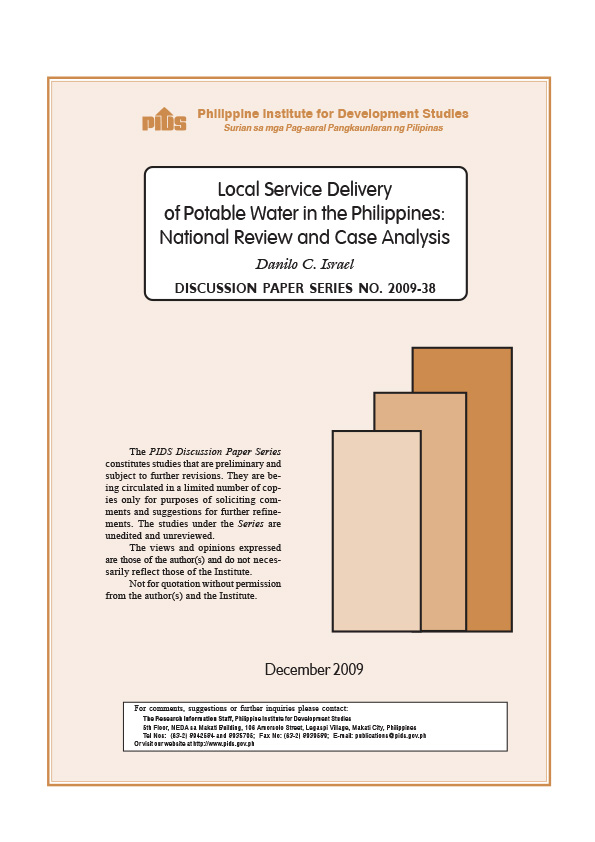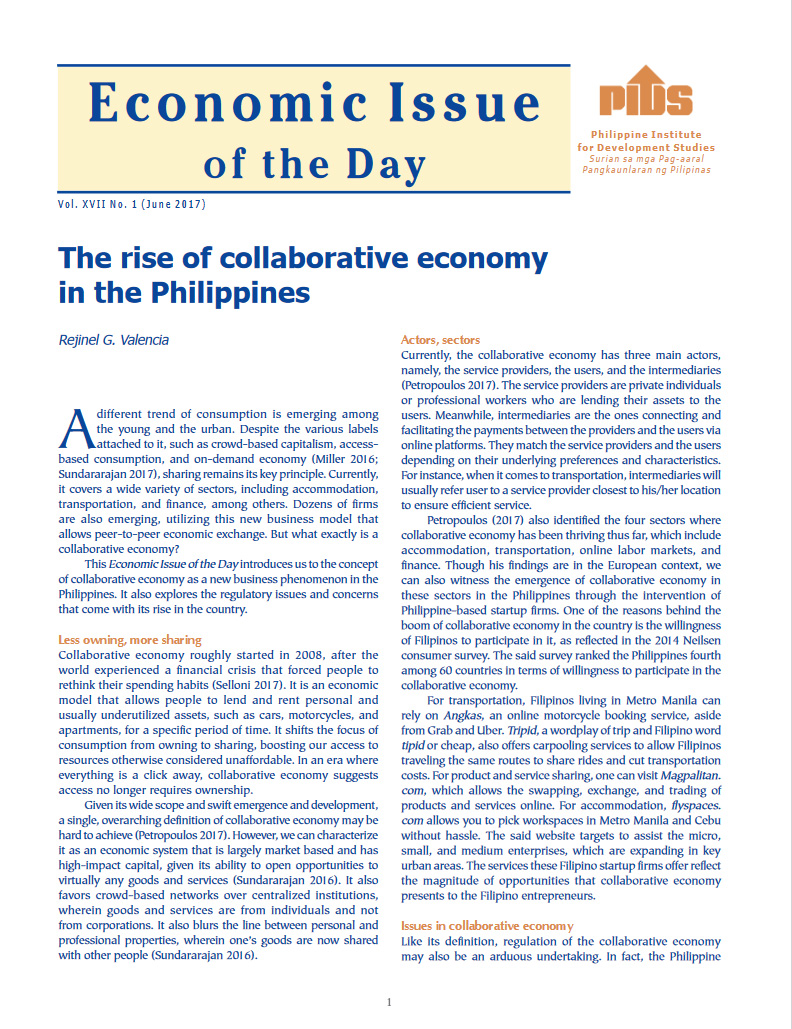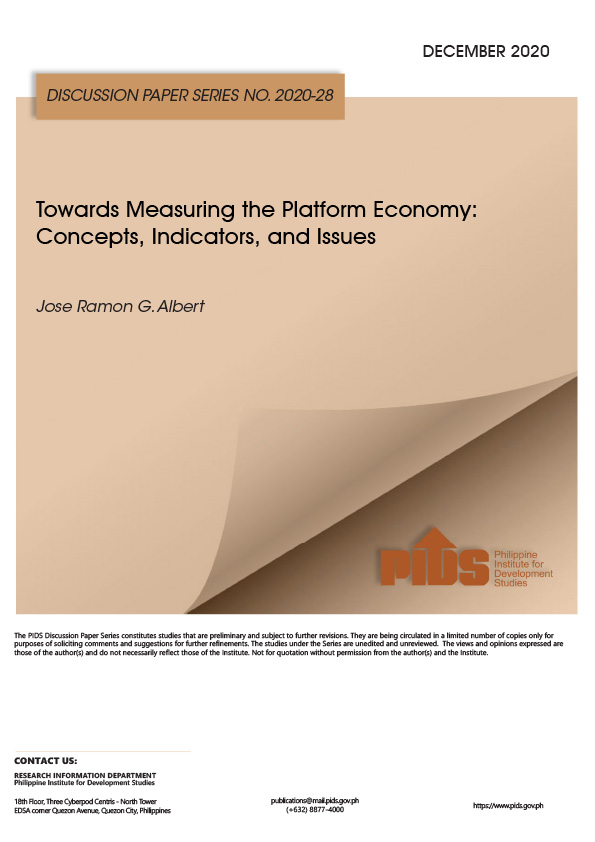The Philippine Institute of Development Studies (PIDS) is encouraging legislators to create a separate policy for a collaborative economy in order to better regulate the markets under this emerging economic model.
According to a recent paper released by PIDS, the current laws in the country are based on the ownership-based economy, which makes it an arduous task for the government to regulate the collaborative economy.
"[Collaborative economy] is an economic model that allows people to lend and rent personal and usually underutilised assets, such as cars, motorcycles, and apartments, for a specific period of time," said Rejinel Valencia, information officer at PIDS Research Information Department and the author of the paper.
Valencia noted that the sharing economy is most pervasive in accommodation, transportation, online labour markets, as well as the finance sector. However, since this type of economy is not regulated, it poses challenges and risks for service providers, intermediaries, and users.
"When it comes to employment, for instance, it remains unclear whether service providers and intermediaries should have an employment relationship," he said.
Intermediaries refer to the party that provides an online platform to connect and facilitate payments between providers and users, Valencia explained based on a policy contribution by Bruegel research fellow, Georgios Petropoulos.
Valencia also expressed concern on the security of the data that intermediaries hold. "In order to use the service that intermediaries provide, users and providers also have to supply certain information that can be considered private. The intermediaries may exploit the opportunity to collect these sensitive information and monitor the activities and behaviours of their users."
On top of that, he cited a Harvard journal by Stephen Miller that failure to recognize the markets in a collaborative economy as legitimate businesses may only trigger service providers to work underground.
"The Philippine government must analyse the policy environment on collaborative economy around the world to assess its social and economic impacts. The end goal, of course, is to lay down a set of clear and evidence-based policies and framework to maximise the fruits of this emerging economy for the benefit of the Filipino people," Valencia explained.
In 2015, the Department of Transportation and Communications (DOTC) - now known as the Department of Transportation (DOTr) - has formed a new transport classification for app-based ride hailing services such as Uber and Grab to better regulate them.
Ride-hailing services are classified under the Transportation Network Vehicle Service (TNVS), which provide "pre-arranged transportation services for compensation using Internet-based technology application or a digital platform technology to connect passengers with drivers using their personal vehicles."
According to a recent paper released by PIDS, the current laws in the country are based on the ownership-based economy, which makes it an arduous task for the government to regulate the collaborative economy.
"[Collaborative economy] is an economic model that allows people to lend and rent personal and usually underutilised assets, such as cars, motorcycles, and apartments, for a specific period of time," said Rejinel Valencia, information officer at PIDS Research Information Department and the author of the paper.
Valencia noted that the sharing economy is most pervasive in accommodation, transportation, online labour markets, as well as the finance sector. However, since this type of economy is not regulated, it poses challenges and risks for service providers, intermediaries, and users.
"When it comes to employment, for instance, it remains unclear whether service providers and intermediaries should have an employment relationship," he said.
Intermediaries refer to the party that provides an online platform to connect and facilitate payments between providers and users, Valencia explained based on a policy contribution by Bruegel research fellow, Georgios Petropoulos.
Valencia also expressed concern on the security of the data that intermediaries hold. "In order to use the service that intermediaries provide, users and providers also have to supply certain information that can be considered private. The intermediaries may exploit the opportunity to collect these sensitive information and monitor the activities and behaviours of their users."
On top of that, he cited a Harvard journal by Stephen Miller that failure to recognize the markets in a collaborative economy as legitimate businesses may only trigger service providers to work underground.
"The Philippine government must analyse the policy environment on collaborative economy around the world to assess its social and economic impacts. The end goal, of course, is to lay down a set of clear and evidence-based policies and framework to maximise the fruits of this emerging economy for the benefit of the Filipino people," Valencia explained.
In 2015, the Department of Transportation and Communications (DOTC) - now known as the Department of Transportation (DOTr) - has formed a new transport classification for app-based ride hailing services such as Uber and Grab to better regulate them.
Ride-hailing services are classified under the Transportation Network Vehicle Service (TNVS), which provide "pre-arranged transportation services for compensation using Internet-based technology application or a digital platform technology to connect passengers with drivers using their personal vehicles."












